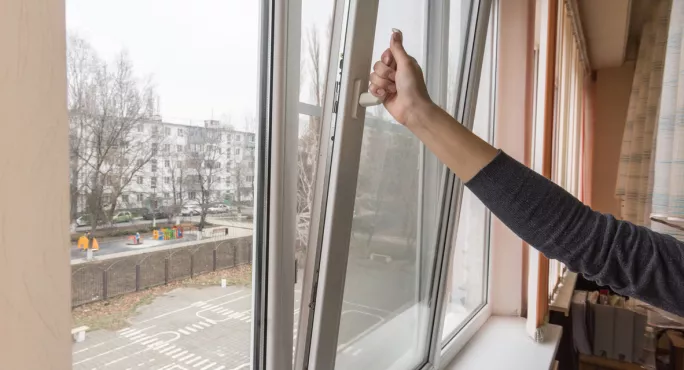There is “insufficient emphasis” on classroom ventilation and mask-wearing in official guidance for keeping schools Covid-safe, scientists have warned.
While recommendations from the Department for Education are “helpful up to a point”, there is currently “too much emphasis” on measures that are “based on a predominantly large droplet mode of spread”, according to the experts.
If a virus spreads exclusively through large droplets, then action is needed to “minimise direct touching or spraying”, the scientists write in the British Medical Journal (BMJ).
This could include cleaning surfaces, installing screens, keeping two metres apart, or wearing any type of mask.
Explained: Covid-19 school safety guidance
Covid: Keep classrooms ‘well-ventilated’, schools told
Exclusive: School openings ‘not safe’ in third of areas
But for Covid-19, “increasingly the evidence suggests that airborne spread is the dominant mode of transmission even at close range”, the article states.
Covid and schools: The importance of ‘adequate ventilation’
This means additional measures are required to “minimise air-sharing”, such as “universal, well-fitted and higher grade masking, particularly indoors; adequate ventilation and air filtration; reducing crowding and time spent indoors; and managing patterns of air flow”.
The scientists warn that classrooms are “a high-risk environment”, and ventilation “should align with expert guidance”.
They also suggest that activities such as “speaking, singing, shouting, playing brass and woodwind instruments, and doing strenuous physical activity” should be “minimised indoors”.
Outdoor lunch would be safer, they add, “although this is clearly weather-dependent”.
The DfE guidance currently states that schools must always keep occupied spaces “well-ventilated”, ensure face masks are worn where recommended, maintain enhanced cleaning, and consider how to minimise contact on-site.
The scientists conclude: “In our view, there is currently an insufficient emphasis on ventilation and localised air management, masking and avoidance of specific activities known to increase airborne spread in government guidelines for schools.”
The article was contributed by Zeshan Qureshi, clinical academic at St Thomas’ Hospital in London; Trish Greenhalgh, professor at the Department of Primary Care Health Sciences at the University of Oxford; and Lydia Bourouiba, professor at the Fluid Dynamics of Disease Transmission Laboratory at the Massachusetts Institute of Technology.
A DfE spokesperson said: “We are taking every possible measure to reduce Covid cases and the protective measures that schools have been following throughout the autumn term continue to be in place to help protect staff and students.
“As part of this, we have provided consistent advice to schools on ventilation since they first began reopening last summer. We expect schools to provide good ventilation wherever possible, but also expect schools to maintain a safe and comfortable environment for their pupils and staff members.
“We have also strengthened protective measures include the wearing of face coverings by all students and adults in secondary schools and colleges wherever social distancing cannot be maintained.”




